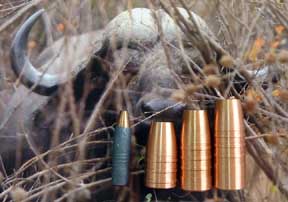

 The Accurate Reloading Forums
The Accurate Reloading Forums  THE ACCURATE RELOADING.COM FORUMS
THE ACCURATE RELOADING.COM FORUMS  Rifles
Rifles  Big Bores
Big Bores  True Drive Band or False Drive Band: Practical or Inconsequential?
True Drive Band or False Drive Band: Practical or Inconsequential?Go  | New  | Find  | Notify  | Tools  | Reply  |  |
| one of us |
My guess is that the GSC "True Drive Bands" and copper (instead of brass) will give the best all-around possibilities for internal, external, and terminal ballistics, with cartridges like the 405 WCF, 400 H&H, and all 400 Whelen variants (Hawk, Petrov, Berry They are not grooved or multi-cannelured bullets. Read here: http://www.gsgroup.co.za/faqdrivebands.html And feast your eyes on a sleek .411/317gr HV: Technical drawing:  Example of a prototype, with band locations a little different: 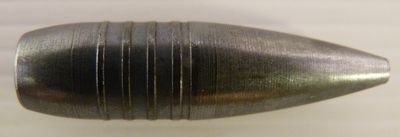 I am going to order some of these from Michigan, GSC-USA, so I can roll naked in them. I do not know the overall length of the bullet or the length of the nose projection for QuickLOAD, yet, but hope to have some in hand for measuring that, and boat tail, etc. The inter-band, bore-riding diameter for this bullet is .403", but GSC can easily adjust this to the .404" I need in my Shilen barrels. (.411" major diameter of the bands is perfect for Shillen barrels, as is.) After they are fired, photography of the engraving on a recovered bullet can guide GSC (Gerard consulting) regarding any adjustment if necessary. So sayeth Gerard Schultz. For example, this picture seems to show an HV bullet similar to the ideal 400 Whelen bullet, but the minor diameter of the bullet shaft seems to be greater than bore diameter of the barrel used, though the major diameter of the bullet, on the drive bands, seems to be a good match to the groove diameter: (picture snagged from the GSC website) 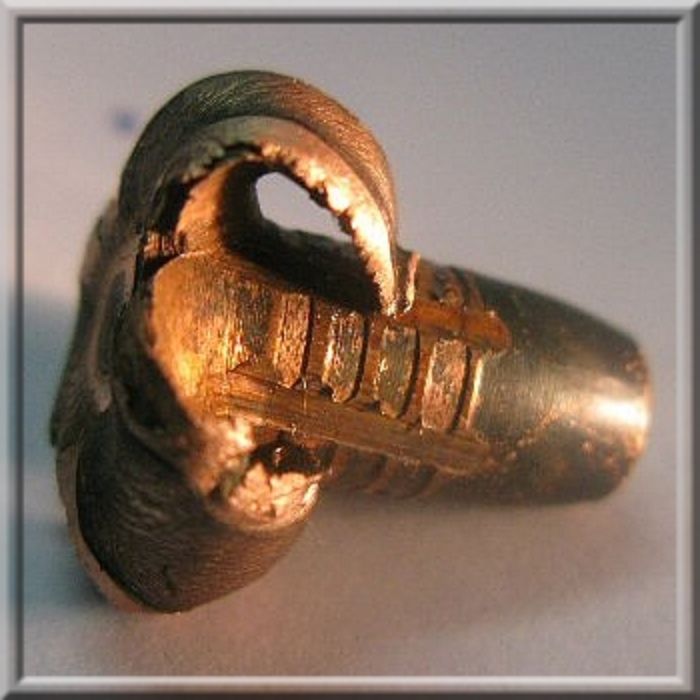 Or is that a good fit, in picture immediately above? What would Gerard or Gina say? Hmmm? What? They are that interested in optimizing the fit of the bullet to your barrel, so they say. Cat amongst the pigeons. This bullet is going to be to the 400 Whelen Berry as the Walterhog is to the .375/404 Jeffery. Bullet # 411317HV276 | ||
|
| one of us |
Really now? How important is it to have TRUE DRIVE BANDS where band diameter is exactly equal to groove diameter, and inter-band shank (minor) diameter is exactly equal to bore/land diameter? Is it better to be + 0.0005 on one or the other or both of those bullet diameters? Bad to be minus on either bullet diameter? Exact fit is an infinitesimal tail-chaser. Better to be infinitesimally bigger than smaller with your bullet diameters versus the barrel diameters? Are "FALSE Drive Bands" really that bad? FALSE DRIVE BAND: 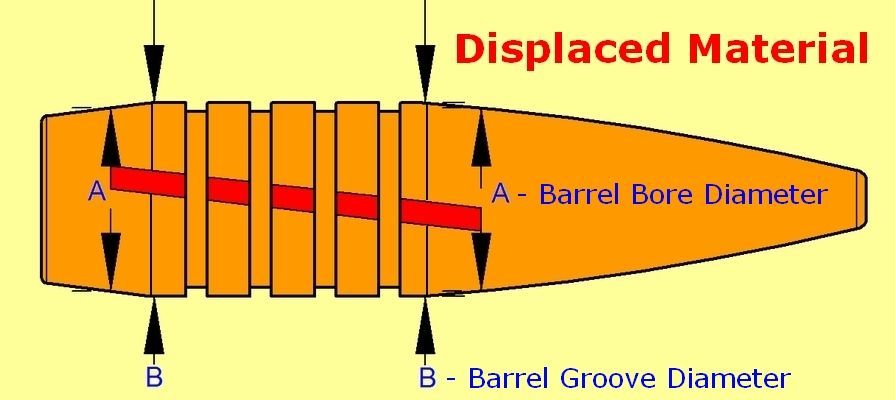 TRUE DRIVE BAND: 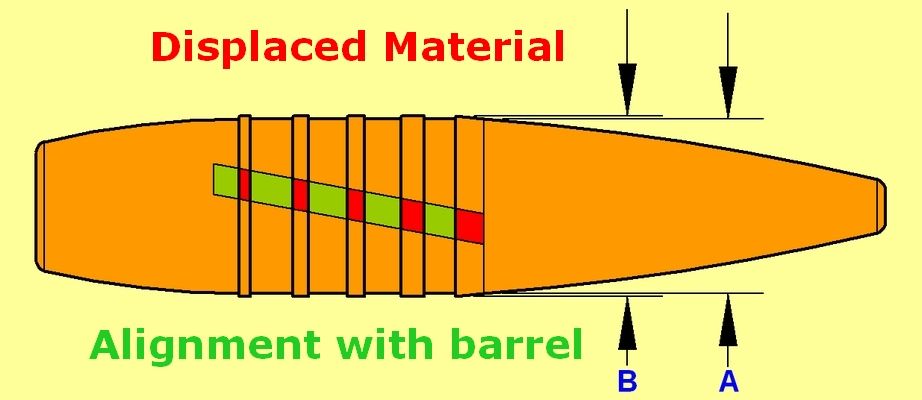 | |||
|
| one of us |
The fit of the bullet in the first post is pretty good. It is obvious from the tops of the drive bands that the seal of gas was effective and that the engraved drive bands resulted in displaced material. The only place that material has to go is rearwards. In the photo below one can see how the drive band material is displaced to the right and down onto the shaft, where there is space for it.  Agreed, slightly over on the size of the shaft is better than under size for accuracy. Where the shaft is two or three micron larger than the diameter of the barrel, there is no measurable pressure increase because of that fact. The diameter of the faces of the lands of a barrel (the bore diameter) will change with use in any case. Extended use will wear away the faces of the lands and the groove diameter and, when either becomes more than 30 micron over size, CIP and SAAMI says the barrel is worn beyond specification. Cleaning with paste can remove 4 micron at a time and vigorous scrubbing with a dirty bronze brush and liquid, will get to half a micron at a time, in extreme cases. | |||
|
| one of us |
mi·cron also mi·kron (mkrn) n. pl. mi·crons or mi·cra (-kr) also mi·krons or mi·kra (-kr) A unit of length equal to one millionth (10-6) of a meter. No longer in technical use. So we are talking in terms of a micron, 0.00003937", or about 0.00004", eh? Nominal mm bore and groove diameters + 0 to 3 thousandths of a mm? I am getting too close to some proprietary information here, eh? What good will it do anybody unless they can make bullets to a +0.00012"/-0.00000 tolerance? I would have to find some special equipment to even be able to measure in microns. I will not be holding my breath over that one. But I would like to give the 400 Whelen every advantage possible. | |||
|
| one of us |
With bore and groove diameters of different barrel makes being different, one from another, and even each barrel individually changing over time, with use, is it practical to custom fit each barrel with it's own special bullet? Well certainly not for a mass-producer wanting one bullet to work in all rifles of a nominal caliber. Doesn't that work out very well, most of the time? For example, Saeed's monometal copper .375/300gr Walterhog: 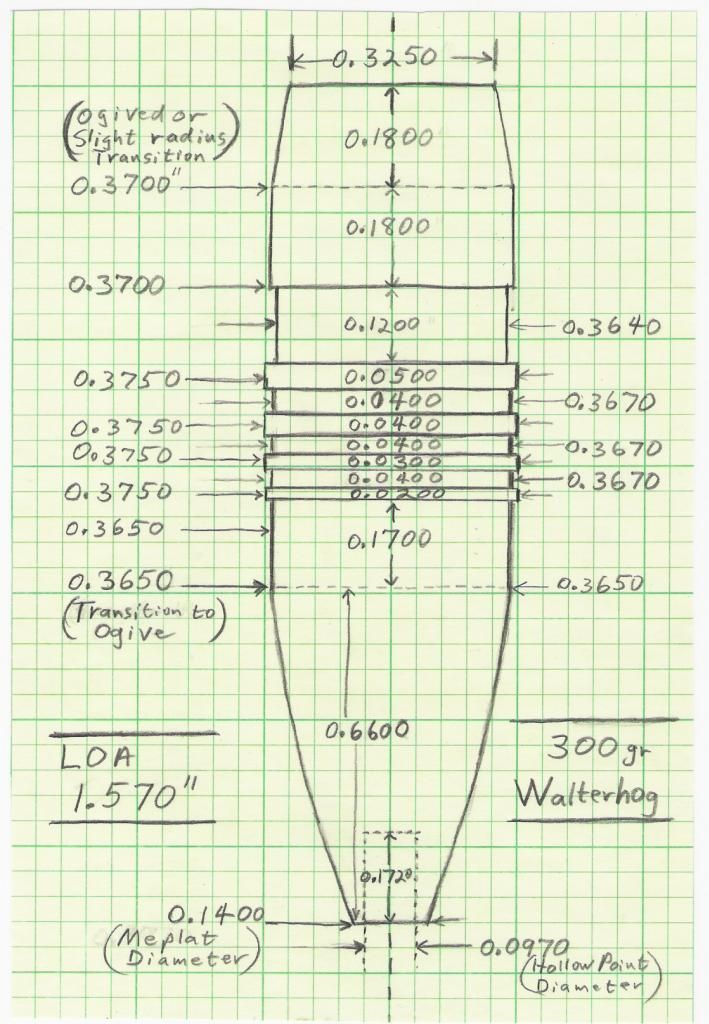 Barrett's .416/395-grain monometal brass VLD:  A Barnes monometal copper .411/300gr TSX FB: 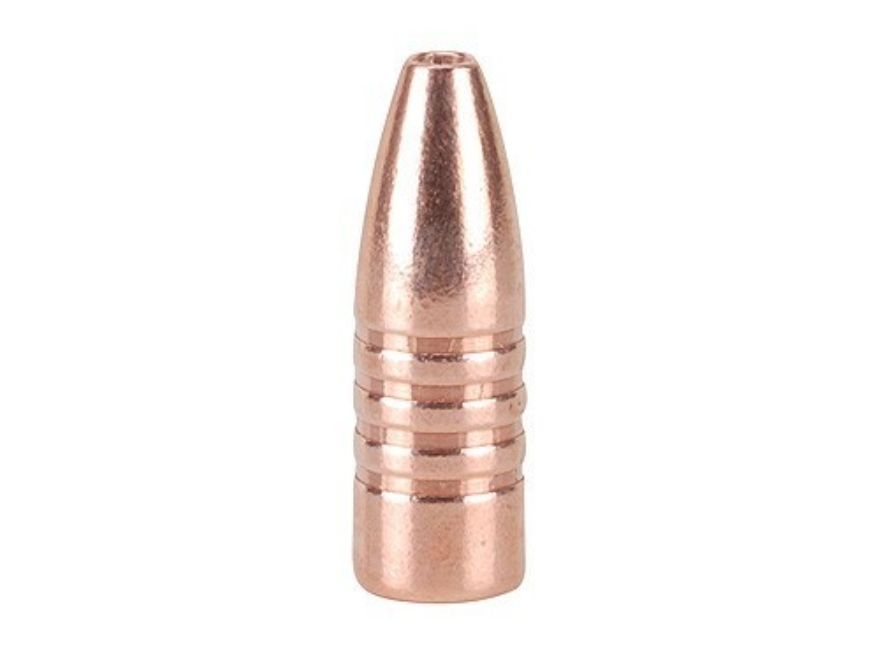 CEB monometal brass .500-cal bullets:  | |||
|
| one of us |
If a manufacturer finds a way to do this, it would be a good thing. That reminds me of someone who said "Be careful what you wish for, it may already exist." | |||
|
| one of us |
A chance to Ride the Buffalo again: It will be important to recover some bullets and photograph the engraving patterns for Gerard's analysis. 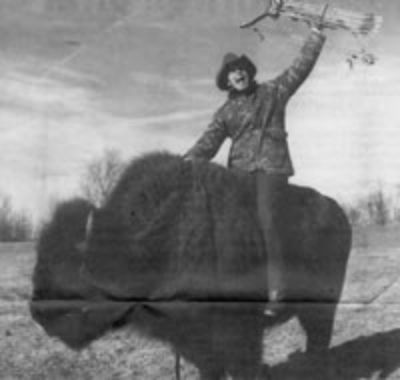 Custom Fitted for a .411/.404-bore, it might weigh about 320 grains:  Mass produced 300-grainer for 405 WCF and other rifles of ".411-caliber" with various groove and bore dimensions:  I think I will be able to do some comparison tests in the 400 Whelen by: 1. Catching these bullets at various velocities in the Iron WaterBoard Buffalo for penetration check: 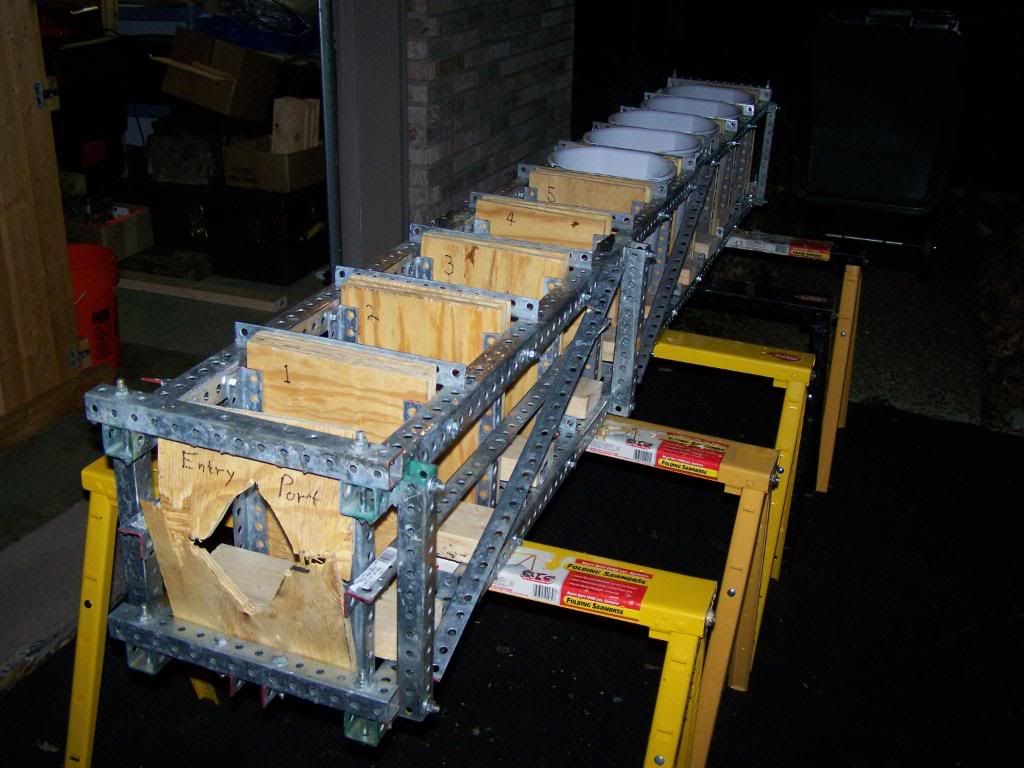 2. Low velocity expansion threshold in Homer Bucket "Water Trap": 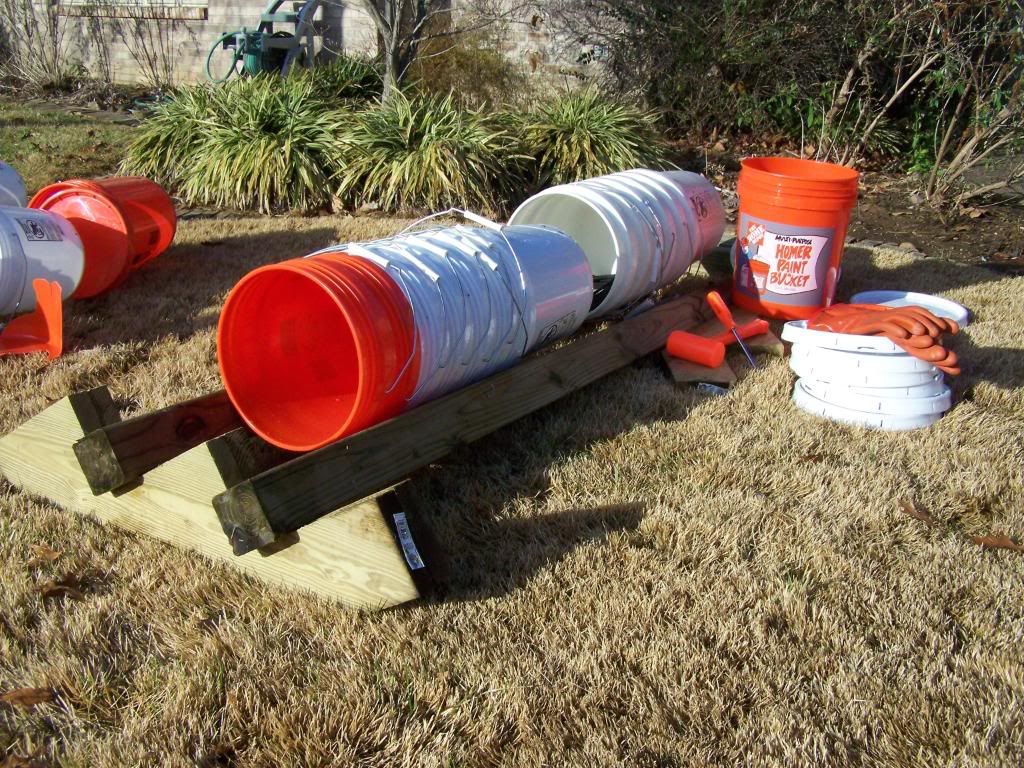 3. Chronograph for MV to compare KE with each bullet. 4. Shoot groups on paper for accuracy comparison. | |||
|
| Powered by Social Strata |
| Please Wait. Your request is being processed... |
|
 The Accurate Reloading Forums
The Accurate Reloading Forums  THE ACCURATE RELOADING.COM FORUMS
THE ACCURATE RELOADING.COM FORUMS  Rifles
Rifles  Big Bores
Big Bores  True Drive Band or False Drive Band: Practical or Inconsequential?
True Drive Band or False Drive Band: Practical or Inconsequential?

Visit our on-line store for AR Memorabilia

